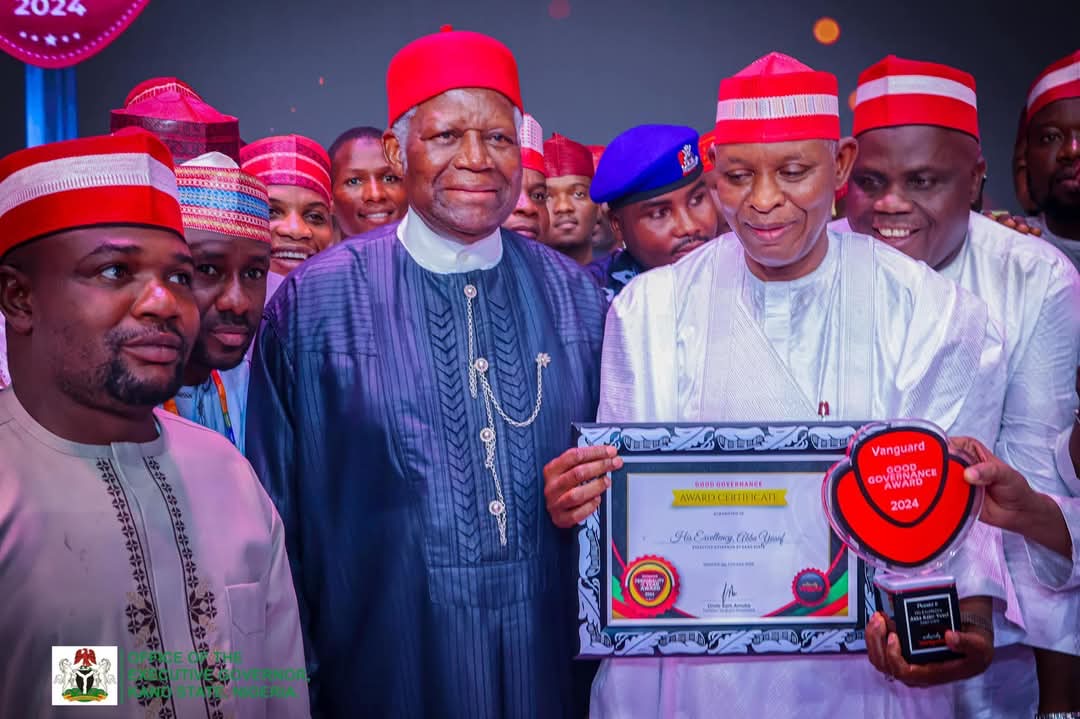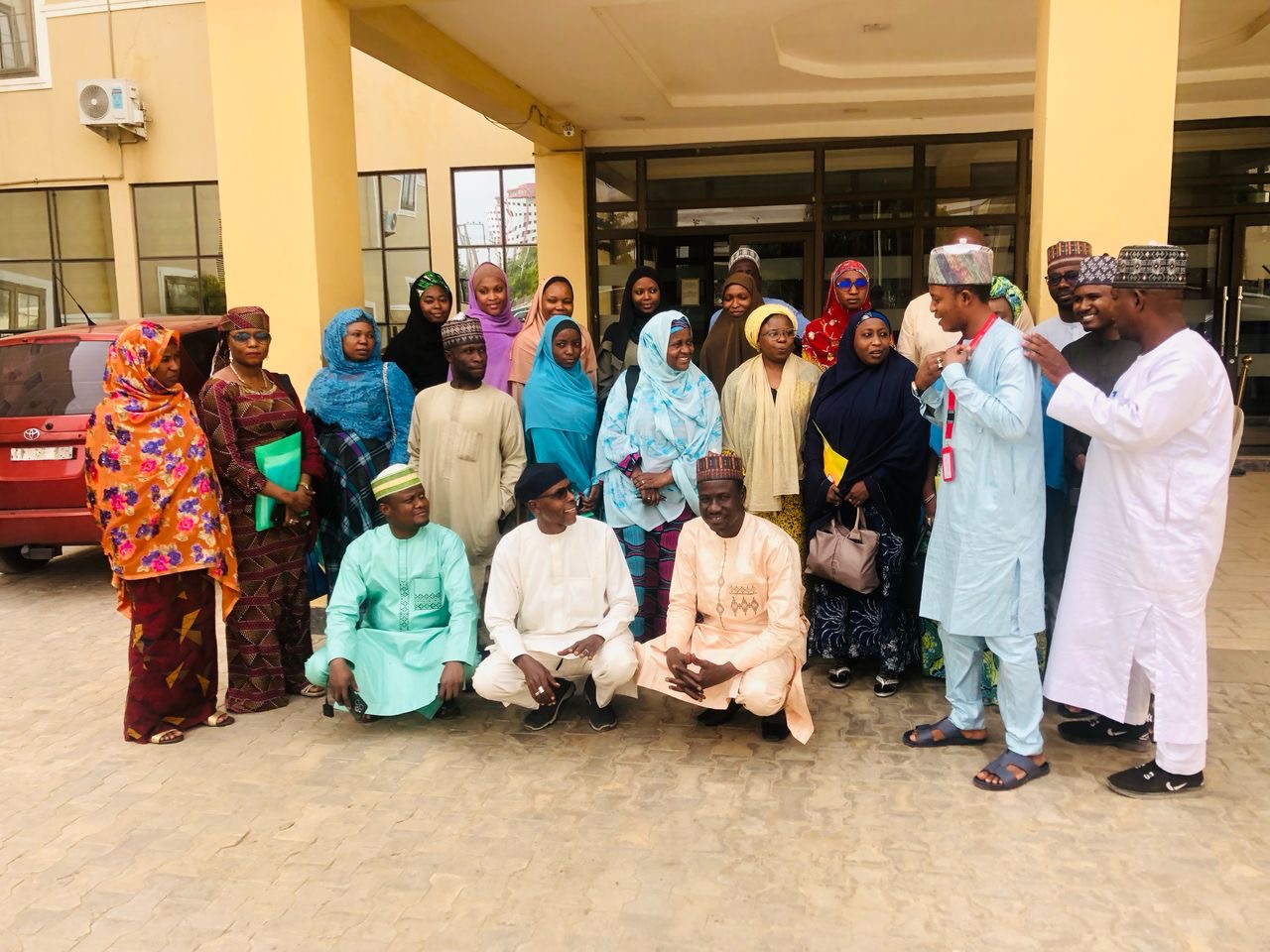Headlines
NCC warns against sale, use of non-type approved devices

Nasiru Yusuf Ibrahim
The Nigerian Communications Commission (NCC), has warned traders and other stakeholders about the negative consequences of selling and purchasing phones and telecommunications gadgets that are not type approved by the Commission.
KANO FOCUS reports that the NCC gave the warning on Friday in a statement signed by it Director Public Affairs Reuben Muoka and made available to journalists.
The statement said the certification of telecom devices used in the telecom sector is one of the mandates of the NCC as enshrined in the Nigerian Communications Act (2003) whose central objective is the “protection of the rights and interests of consumers”.
It added that non-type approved telecom devices are considered to be supplied to the Nigerian market from grey sources and are known to degrade quality of services in the network.

Deputy Director Consumer Affairs Bureau, Dr. Emilia Nwokoro, who spoke for the Executive Vice of the NCC, Prof. Umar Garba Danbatta, at the 5th edition of Market Conversation, a telecom consumer outreach programme of NCC, which took place recently at the GSM Village in Abuja, said the event was part of the sensitization efforts of the Commission to address the issue.
She said there is a need to sensitise traders at the market about the implications of trading in substandard products as they may face the risk of arrest and prosecution when found selling non-type approved devices.
“The essence of coming here today is to enlighten the traders on the dangers of selling non type-approved devices. The NCC established procedures for certifying telecom products sellable and usable in Nigeria, and that explains the Commission’s efforts to raise awareness to ensure that substandard products are not circulated in any market in Nigeria,” she said.
She informed them that the procedure for approval of telecom devices has been established by the Commission, and all type approved devices have been published on the NCC website for public and user reference. Therefore, traders should take advantage of this information to identify type approved against none type approved phone devices.
The Chairman, GSM Village Market, Abuja, Macdonald Ajuogu, said the market union has a task force that monitors the types and standards of devices sold there, and that the association has also put measures in place to deal with any member that goes against their rules.
“Normally, we have a platform in the market whereby anybody that deals with any phone in the market is registered with the union and we also have a task force that always checks on any product that is being sold in the market, including computers that are sold in the GSM village.
Ajuogu thanked the NCC for devoting time to come and sensitise the traders not to sell or purchase non-type approved devices and promised that the traders would strive to abide by the prescriptions of the commission by cross checking with the NCC’s list of certified and type approved devices to avoid being sanctioned.

Headlines
Governor Yusuf Champions Education, Resolves Certificate Crisis for Kano Graduates

Kano State Governor Abba Kabir Yusuf has emerged as a beacon of hope for graduates left stranded due to the previous administration’s negligence regarding academic certificates.
His determination to rectify these injustices has culminated in decisive actions to secure the future of Kano’s youth. Ibrahim Adam, the Special Adviser to the Governor on Information, shared these developments with the media.
On December 9, 2024, Governor Yusuf traveled to Cyprus with a mission to obtain the overdue academic certificates for Kano students affected by the prior administration’s failure to meet its educational financial obligations.
During a critical meeting with the management of Near East University, the governor focused on facilitating the release of certificates for students who graduated between 2015 and 2019, particularly in essential fields like Medicine and Nursing.
This was confirmed by Sunusi Bature Dawakin Tofa, the governor’s spokesperson.

In a significant move, Governor Yusuf has settled the outstanding fees of €1.4 million (approximately ₦2.5 billion) owed to the university for 84 medical and2015 to 2019.
This substantial financial commitment honors the dedication and hard work of these graduates, restoring their hopes for a future that had previously been unjustly delayed.
According to Ibrahim Adam, the certificates are set to be handed over to the Kano State Scholarship Board through the Nigerian Ambassador to Turkey, marking a pivotal moment for the affected students.
Governor Yusuf acknowledged the challenges faced by the graduates, declaring, “This situation has been a significant setback for our children, hindering their dreams and aspirations, and it has also affected our state, which is in dire need of their expertise.”
His vision for a prosperous Kano is centered on prioritizing education, ensuring that talented individuals can make valuable contributions to the state’s advancement.
The governor’s proactive measures not only address the systemic issues in the education sector but also inspire renewed hope among Kano’s youth.
By fulfilling his promises, he emphasizes the crucial role of supporting young people in achieving their aspirations, which is vital to the state’s growth.
As this milestone is celebrated, it is evident that Governor Abba Kabir Yusuf’s relentless pursuit of educational reform signals a transformative era for Kano State.
His administration’s unwavering focus on education stands as a vital investment in the futures of individuals and the overall development of the state.
Under his leadership, Kano State is poised to realize its full potential, with eager graduates ready to make impactful contributions to their communities.
Governor Yusuf’s commitment to empowering the youth serves as an enduring reminder that with dedication and decisive action, a brighter future is attainable for all.

Headlines
Governor Yusuf Bags Vanguard’s 2024 Good Governance Award

Mukhtar Yahya Usman
Kano State Governor, Alhaji Abba Kabir Yusuf, has been named Governor of the Year 2024 (Good Governance) by Vanguard Newspaper, in recognition of his transformative achievements in the education and healthcare sectors.
The recognition was announced in a statement issued by the Governor’s spokesperson, Sanusi Bature Dawakin Tofa, on Saturday.
Governor Yusuf received the award at a prestigious event held in Lagos, where eminent personalities from across the country were honoured for excellence in leadership and service.
Speaking at the ceremony, the Chairman of the occasion, Atedo Peterside, emphasized that the selection process was based on merit and verifiable impact, commending the awardees for their outstanding contributions to national development.

Vanguard’s Editor-in-Chief, Eze Anaba, praised Governor Yusuf for setting a high standard in governance through his commitment, innovation, and focus on people-centered policies.
In his remarks, Governor Yusuf expressed gratitude to Vanguard for the recognition, dedicating the award to the people of Kano State.
He reaffirmed his administration’s resolve to continue investing in sectors that directly impact the lives of citizens, especially education, health, and social welfare.
Other recipients of the Good Governance Award included Governors Umar Namadi (Jigawa), Charles Soludo (Anambra), Douye Diri (Bayelsa), Biodun Oyebanji (Ekiti), Sheriff Oborevwori (Delta) and Hope Uzodinma (Imo).
Governor Yusuf was accompanied to the ceremony by members of the State Executive Council, lawmakers, special advisers, local government chairmen, and close political allies.
This latest honour comes just four days after he received the Governor of the Year (Education) award from Leadership Newspaper.
The Governor is also scheduled to receive the Africa Good Governance Award from Heritage Times Magazine later this month in Morocco.

Headlines
Kano Tops Nigeria’s Zero-Dose Immunization List as Boost Project Targets Urgent Action

By Aminu Abdullahi Ibrahim
Kano State has the highest number of zero-dose immunization cases in Nigeria, with 15 local government areas (LGAs) identified as high-burden, according to Save the Children.
This alarming figure has prompted the launch of targeted interventions under the Boost Project, a collaborative initiative by Save the Children and GSK aimed at reducing the number of zero-dose and under-immunized children in the country.
During an engagement meeting held on Thursday with the Kano State Community of Practice (CoP) on Immunization, stakeholders renewed commitments to tackling the issue.
The project is currently being implemented in Kano and Lagos States, with focused interventions in Ungogo and Gezawa LGAs, which are among the most affected areas in Kano.

Speaking at a media and civil society dialogue, Taiwo Folake, Coordinator of the Boost Project, emphasized the critical role of public engagement in reversing the trend.
She called for increased media support to drive awareness and community action on immunization.
Folake explained that the Boost Project works closely with state and local governments, traditional and religious leaders, and caregivers to ensure that children who have never received routine vaccines are reached, while also reintegrating those who have dropped out of immunization schedules.
Dr. Itunu Dave Agbola, Policy and Advocacy Coordinator of the project, said the initiative is also focused on improving domestic resource mobilization for immunization funding, strengthening governance, and developing a Kano-specific immunization policy to enhance planning, funding allocation, and accountability.
She noted that building trust through community leadership is vital for vaccine acceptance.
Also speaking, Salisu Yusuf, Co-Chair of the Kano CoP on Immunization, reiterated the group’s commitment to working with all stakeholders to reduce the number of high-burden LGAs.
He dismissed widespread misconceptions about vaccine safety, assuring that vaccines are safe and scientifically approved.
Yusuf pledged to intensify sensitization efforts through media outreach, house-to-house campaigns, and community meetings.
The meeting marks a renewed drive to improve immunization coverage in Kano State, with a strong emphasis on reaching vulnerable and underserved communities.














